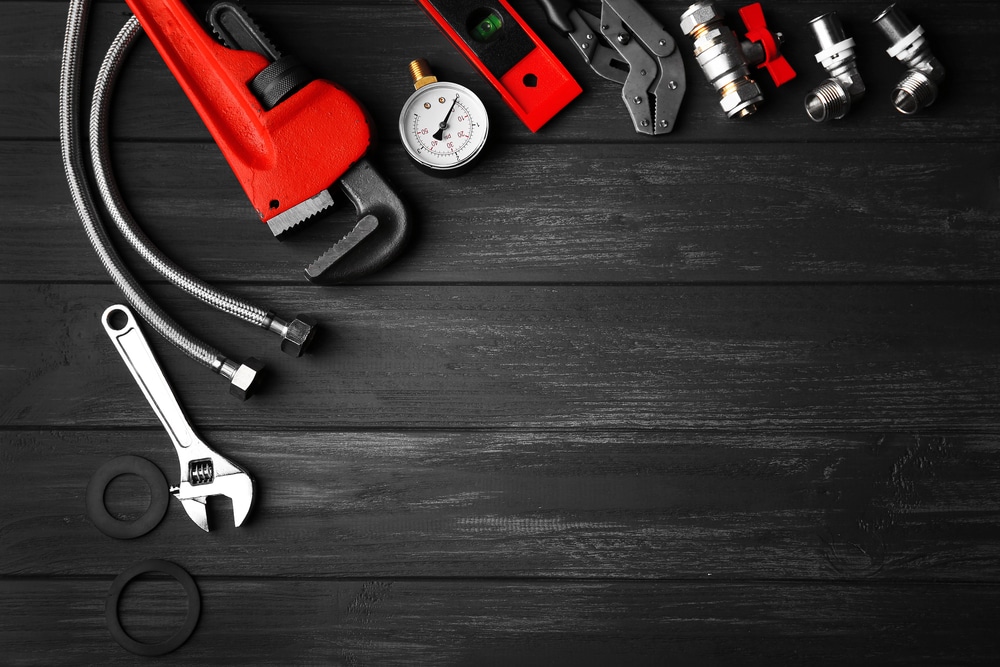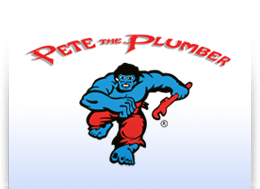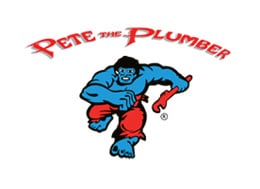
Most Calgary homeowners are no strangers to the occasional winter plumbing problem when the temperatures start to plummet—but when the problem affects comfort and well-being around the home, a quick diagnosis and fix can make a world of difference.
Frozen pipes, no hot water, and other common winter plumbing issues make life pretty uncomfortable pretty quickly!
Let’s take a quick look at the main problems you’re likely to encounter during a Calgary winter—and some potential fixes you may be able to attempt (if in doubt, simply call the professionals at Pete the Plumber).
Frozen water pipelines
Pipes freeze either when they aren’t insulated properly or are exposed to extreme temperature drops. The water expands as it freezes, possibly leading to burst pipes and water flooding the home when it thaws again—often causing damage while the homeowner is away.
With the wide fluctuation of temperatures in Calgary winters (Chinook winds and all), constant freezing and thawing of water in the pipes may occur. Frozen water pipes are, therefore, a reality that homeowners need to deal with.
Frozen pipes are usually less of a problem if you use your water system constantly throughout the winter. However, if you head off on vacation like many Calgarians in the coldest months, you might come back to a proper mess unless you take some precautions.
Similarly, vacation homes in the countryside often suffer from frozen pipes because of the general lack of use of the plumbing during the colder months.
What to do about burst or frozen pipes
If you’re at home and the pipes freeze, open the faucets and let water flow through the pipes to help the thawing process. Try using a hair dryer or an electric heating pad to warm the area around the pipes for greater thawing impact.
If the worst happens and your water pipes burst while you’re away, immediately locate and shut off the main water valve to stop the water flow. Then, contact a plumber as soon as possible to repair the burst pipe, document any damage with photos, and contact your insurance company to claim for the damage. Only start the cleanup process when it is safe to do so.
If you’re heading south to escape a few weeks of winter, make sure that whoever looks after your home runs your taps and flushes your toilets every few days to prevent the pipes from freezing. Unhook outdoor hoses while you’re gone and keep your heat on at a low temperature while you’re away (16 degrees Celsius or so), which will prevent the pipes from freezing.
There are more tips about winterizing your home properly below.
Supply line break
Another common winter plumbing problem is a break in the water supply line. This is when water freezes outside the home.
Inside Calgary homes, furnaces are on most of the time during the winter and water runs through the pipes throughout the day. This activity generally prevents pipes from freezing.
However, standing water outside the home can freeze and create ice blockage in your supply pipes, which bring fresh, clean water into your home. If this ice builds up pressure, the pipe can break and cause leaks or pools of water that can also freeze.
What to do about a supply line break
Disconnect all outside hoses before the freezing temperatures set in. You also need to drain your outdoor supply line by following these steps:
- Turn off the outdoor water valve inside your home—usually located where water enters your home or near the tank in the basement (turn it to the right to shut it off).
- Turn off your outdoor faucet, disconnect the hose, and drain it by turning the nozzle.
- Drain the pipe and, after removing the hose, turn your faucet back on to allow any remaining water to drain from the pipes. Then turn the faucet off again.
- Place a bucket under the shut-off valve indoors. Open the drain plug (a small, metal cap located on the side of the shut-off valve) and let any residual water flow out of the valve.
- Close the plug.
Broken water heater
Water heater breakdowns are another common winter plumbing problem. Typically, water heaters work hardest in winter and the extra strain can cause issues.
Most problems relate to deteriorating parts, especially the thermostats and heating elements. With gas water heaters, the pilot, thermocouple, and pilot control valve are prone to problems.
Other issues with poorly installed water heaters relate to the lack of insulation. Proper insulation will prevent many issues and also lower bills because the water temperature inside the tank will be higher by a couple of degrees.
What to do about a broken water heater
Most homeowners do not have the expertise to fix water heater problems other than the simplest issues like an incorrect temperature setting on the thermostat.
Once you’ve recovered from the shock of stepping into a cold shower on a cold Calgary morning with no hot water at all, call a plumber.
Also, be sure to service your water heater every year with an annual tune-up from a professional to extend the life of the unit.
Clogged drains
Clogged drains can happen at any time of year—but almost every plumbing problem seems a little more annoying in winter.
What to do about clogged drains
Most Calgary homeowners are familiar with chemical drain cleaners or plungers to help clear blockages. These will usually clear mild blockages but stubborn problems or an issue that keeps recurring may require a professional plumber’s expertise.
A professional has access to more advanced equipment, designed to diagnose and fix awkward problems.
How to properly winterize your home
Winterizing Calgary properties is an essential step before the freezing months set in—especially with our unpredictable winters. Taking a few steps with a plumbing system that won’t be used for a period will prevent problems—whether that’s your home while you’re on vacation or a vacation cottage or cabin that’s empty in winter.
Most importantly, turn off the water supply and let it drain from the building to keep pipes from freezing. Here’s a more comprehensive list of recommended steps:
- Shut off the main valve
- Turn off the water pump and heater
- Open all drain valves and taps (all winter)
- Blow excess water out of the pipes with an air compressor
- Open the drain valve in your hot water tank to empty it of water
- Drain the water from the holding tank
- Flush toilets to remove as much water as possible
- Pour antifreeze down your toilets, tubs, and sink drains
As the temperatures plummet in winter, be extra vigilant about plumbing problems. Remember, prevention is always better than the cure!
If you’re in Calgary, our licensed professional plumbers can help you resolve all common winter plumbing problems. Call Pete the Plumber at (403) 257-1766 to arrange a visit.
Looking for a Calgary plumber?
For dependable home and business plumbing services in and around the Calgary area, trust Pete the Plumber. Call (403) 257-1766 to schedule your service and keep your plumbing system running smoothly for years to come.

